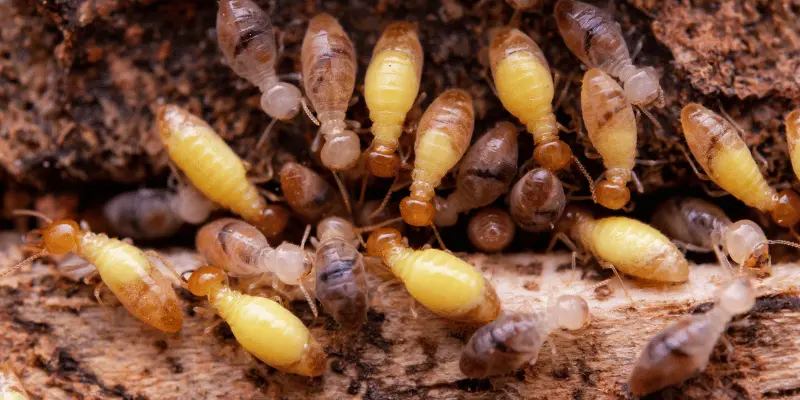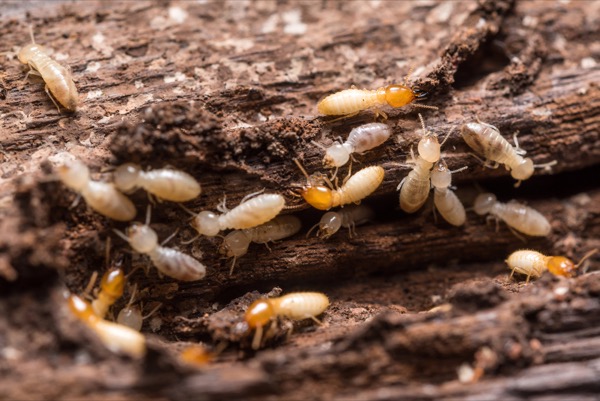Environmental Effect of Parasite Control: Balancing Performance With Sustainability
The ecological influence of insect control is a vital concern that requires a delicate equilibrium in between achieving effectiveness in handling parasites and making certain sustainability of our environments. From the usage of hazardous chemicals that permeate right into our dirt and water to the unintended consequences on non-target types, the effects of traditional bug control techniques are far-reaching.
Hazardous Chemicals in Bug Control
The utilization of damaging chemicals in insect control presents considerable environmental and health and wellness threats that necessitate mindful factor to consider and mitigation strategies. Pesticides, herbicides, and pesticides are commonly made use of to eradicate parasites, yet their widespread application can result in unintentional consequences. These chemicals can pollute soil, water resources, and the air, impacting not only the targeted bugs however likewise valuable insects, wild animals, and people.

To resolve these threats, incorporated bug monitoring (IPM) strategies are being advertised as an extra lasting option. IPM includes a mix of methods such as organic control, environment adjustment, and the targeted use chemicals as a last hotel (ant controlmount holly nc). By adopting a holistic approach to pest control, we can minimize the ecological and wellness effects related to harmful chemicals while properly handling pest populations
Influence On Non-Target Species
Thinking about the unintended effects of bug control methods, the influence on non-target types is a vital aspect that needs comprehensive assessment. While insect control actions aim to target specific bugs, other microorganisms in the ecological community may be accidentally affected. Non-target types, including useful bugs, birds, mammals, and also plants, can suffer indirect or direct injury from pesticide applications or organic control methods.
Pesticides made to combat a particular insect pest may hurt pollinators like or all-natural predators such as ladybugs. Biological control agents, if not species-specific, can present threats to unexpected targets, interfering with the eco-friendly equilibrium.
To alleviate the influence on non-target varieties, incorporated insect monitoring (IPM) approaches that stress an all natural method to pest control are suggested. These techniques prioritize the use of eco-friendly practices, decreasing damage to helpful organisms while efficiently managing pest populations. Carrying out comprehensive risk assessments and monitoring the end results of parasite control efforts are essential steps in securing non-target types and advertising total environment health and wellness.
Soil and Water Contamination
Unexpected environmental repercussions of insect control methods prolong past influencing non-target species, with considerable effects for soil and water contamination - ant control services. Chemicals, herbicides, and chemical plant foods made use of in insect control can leach right into the soil and contaminate groundwater, presenting a hazard to both terrestrial and water communities.
Water contamination is one more crucial problem connected with bug control methods. To alleviate soil and water contamination from pest control activities, integrated insect management techniques that prioritize sustainability and decrease chemical inputs are crucial.
Air Pollution From Pesticide Use
Exposure to air-borne chemicals during agricultural applications positions a substantial concern for air contamination control procedures. When chemicals are sprayed onto plants, they can volatilize right into the air and kind unpredictable natural compounds (VOCs) and various other airborne pollutants. These chemicals can add to the development of ground-level ozone, a major component of smog that can have detrimental impacts on human health, plant productivity, and total air quality. Furthermore, chemical drift, where pesticides are brought by the wind to unexpected locations, can lead to the contamination of nearby ecological communities and water bodies.

Approaches for Sustainable Insect Control
In the world of farming techniques, executing lasting parasite control techniques is vital for keeping ecological equilibrium and protecting crop returns. Lasting parasite control emphasizes using ecologically pleasant approaches to manage bug populaces properly while reducing damage to non-target microorganisms and communities. Integrated Bug Administration (IPM) is a commonly embraced approach that combines biological, cultural, physical, and chemical control methods to achieve long-term pest monitoring solutions.
One trick approach in sustainable insect control is promoting biodiversity within agroecosystems. By improving natural adversaries of parasites, such as parasitoids and killers, farmers can decrease the need for synthetic chemicals. Plant rotation and diversification are additionally effective strategies to interrupt pest life cycles and develop much less desirable conditions for insects to thrive. In addition, utilizing pest-resistant crop selections and using methods like trap chopping can help in reducing insect pressure without relying heavily on chemical interventions. Eventually, by integrating these lasting bug control techniques, farmers can accomplish a balance in between pest management performance and environmental stewardship.
Conclusion
Finally, the environmental influence of pest control techniques should be thoroughly considered to stabilize performance with sustainability. Dangerous chemicals used in insect control can bring about soil and water contamination, air pollution, and injury non-target species - termite control services. It is important to carry out lasting pest control methods to decrease these negative impacts on the setting and promote a healthier environment for future generations
By taking on a holistic technique to pest control, we can lessen the ecological and health influences linked with hazardous chemicals while successfully taking care of pest populaces.

To alleviate the air pollution caused by pesticide usage, it is vital to adopt integrated parasite administration approaches that prioritize the usage of non-chemical insect control approaches, such as crop turning, all-natural predators, and immune plant varieties. Lasting insect control stresses the use of ecologically pleasant methods to handle parasite populations properly while decreasing harm to non-target microorganisms and ecosystems. Integrated Insect Monitoring (IPM) is an extensively adopted technique that incorporates organic, social, physical, and chemical control methods to attain lasting insect management solutions.